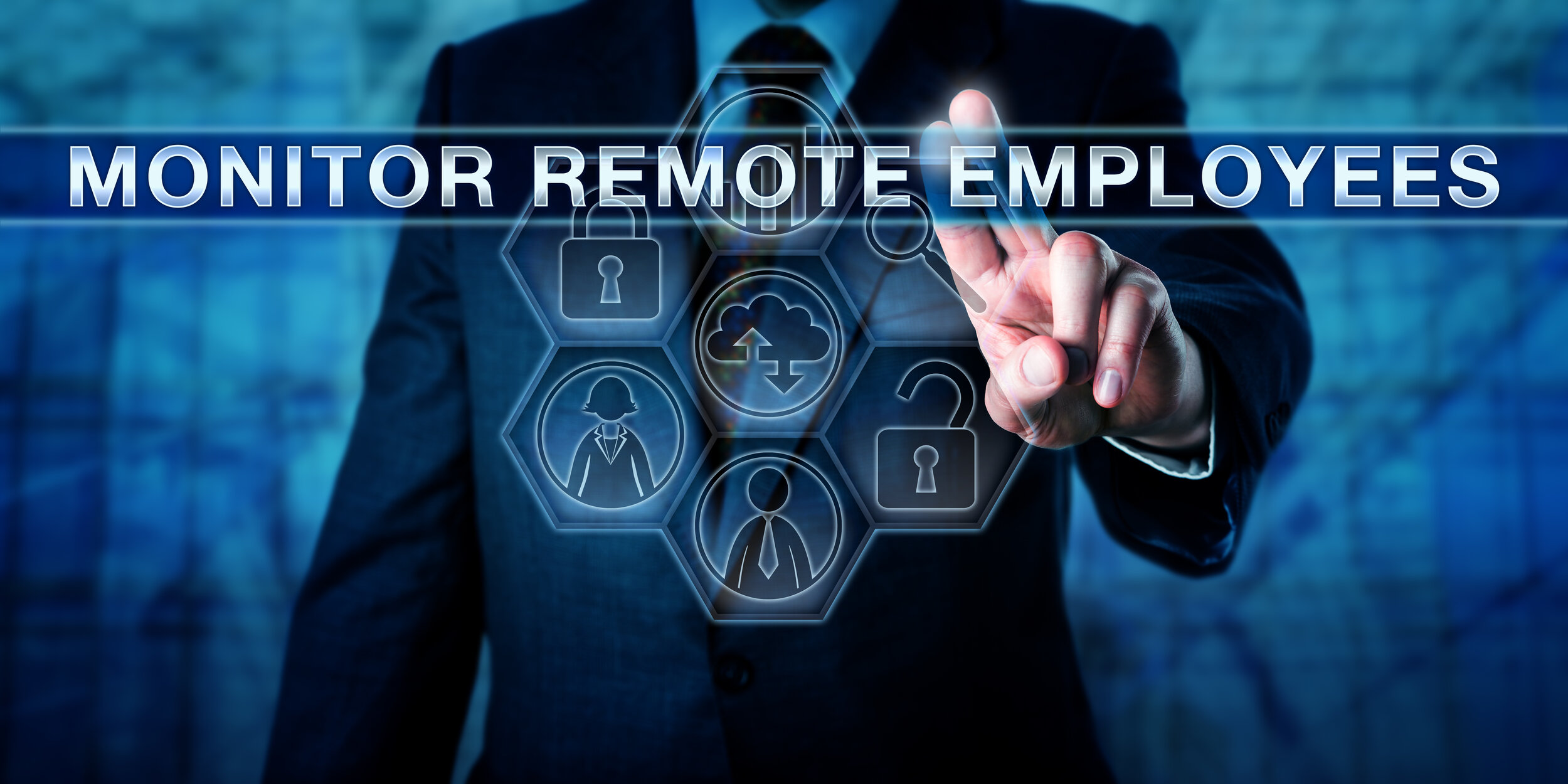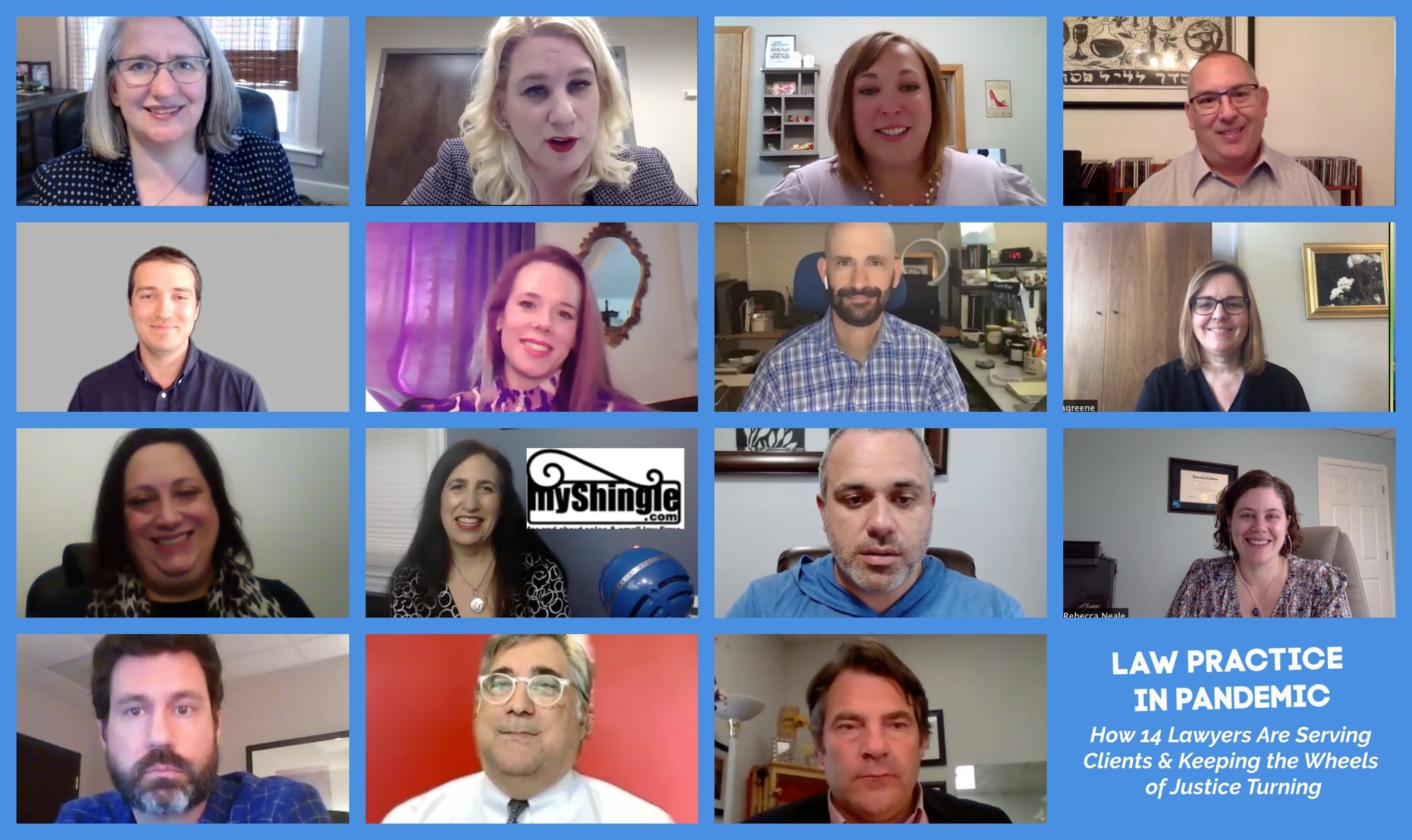Zoom PSA from Star Trek's Brent Spiner!
/Brent Spiner reminds us to turn off our videoconference before commenting on it.
Read MoreBrent Spiner reminds us to turn off our videoconference before commenting on it.
Read MoreTurn any webpage into a PDF!
Read MoreCome find out about upcoming webinars on technology, law and ethics from our future podcast guest Dan Siegel!
Read More
Videoconferencing has become essential given the COVID-19 pandemic. It has allowed us to remain in contact as a society. Moreover, it is becoming a necessary utility for lawyers. We use videoconferencing programs (listed below) to conduct meetings, depositions, and hearings. With this accelerated use, businesses, including lawyers, are finding that videoconferencing is a more economically efficient means of conducting work. Simply put, it saves money, time, and effort to travel, whether it be in town or long-distance. But, the question remains, do I need an external webcam? Probably not.
I have a Logitech Webcam that I had purchased over 15 years ago - it works great - even at 720 dpi ("dots per square inch" - I'll do a post on webcam resolution in a future post). But, when I purchased it, videocamming from our electronic devices was still not a "thing." As social media pushed forward, so did the desire to communicate via video and with it, accessibility to video from our personal electronic devices.
Webcams are provided internally in almost all of our laptops, tablets, and smartphones. For the most part, they work quite well (and in some cases better than my old webcam and even the video cam built into my iMac). And in all of those devices, which I find it unlikely that any attorney does not have at least one of the three listed, videocasting programs can be downloaded and utilized with ease.
Granted, most desktop computers do not have a webcam built in, although some external monitors do have them embedded. But if you have a laptop, tablet, or smartphone with a cam, why waste the money for an external webcam. Unless you are getting into video casting or are appearing on the news for interviews, you simply don't need a fancy, expensive webcam. Meanwhile, you won't have to worry about draining your computer's resources while camming.
A LIST OF POPULAR VIDEOCASTING PLATFORMS FOR BUSINESSES FOR YOUR REFERENCE
Come see previous podcast guest Carolyn Elefant of MyShingle.com interview “yours truly” on her recent videocast series!
Read More
The Muppet Show!

The Hollywood Squares!
I talk with Billy DiMonte from Planet Depos about keeping litigation on track with remote court reporting!
Read More
Last week, the New York Times (NYT) came out with an article about employers remotely monitoring their employee computers. The COVID-19 Pandemic has increased the "shift" from on-site work to work from home. And employers understandably want to make sure they are getting the same bang for their buck – that is, are their employees working just as hard at home as they do at the office?
The NYT's article highlights an employee-monitoring program made by Hubstaff. The employee installs the program onto their "work" computer (and we are going to come back to about what is a "work" computer a little later). The employer is then allowed to monitor the employee's computer use. The program works for the most part – the employer is allowed to see much of what the employee is doing throughout the day. But to summarize the intrusion level, the supervisor for Adam Satariano, the author of the NYT article, says it best, "ick."
"Ick" in the sense that Adam's supervisor was able to see an internet workout class Adam had been a participant. Granted, Adam forgot to log out of the program before he moved on for the day. Monitoring software may "o.k." for large firms who can afford to provide each of their employees with an individual laptop. But for those of us with limited resources, e.g., solos and small practitioners, we rely on our staff (or contractors) to have their own computer. And if I were one of those "employees," I would not be letting my boss put a monitoring program on my personal computer. But this type of intrusion does not reflect that there is a more significant problem at hand.
Apparently, when employers require their staff to use this type of tracking software, their "productivity" goes up! But "productivity" in the legal field cannot be solely defined upon computer use. Sure, research, typing documents, and reading and sending e-mailing are done on the computer. But, you are not always on the computer during meetings, traveling to and from those meetings, or traveling to or appearing in court. And what about courts and other venues that don't allow electronic devices. What if, GASP, you are reading a paper copy of a book? Or work better handwriting your thoughts? Or better yet, have a bunch of programs running and not actually working! The problem of using a tracking program in "law practice" is that it does not address the most crucial question: Is your staff actually practicing law?
I think lawyers are more concerned with quality work and meeting deadlines. These programs can only monitor quantity. It cannot track the "quality" of the employee's work product. And quite frankly, if you cannot rely on your staff to meet deadlines with quality work, no employee monitoring software program is going provide you with the protection you will need from a bar complaint resulting from shoddy work.

I’m second row, third column from the left!
I'm happy to do a shout out to my friend, mentor, and recent podcast guest Carolyn Elefant!
You may recall that Carolyn is an attorney who practices in the areas of energy and eminent domain. Carolyn is also the blogger over at MyShingle.com, where for nearly 20 years has been inspiring solo and small firm lawyers and those who want to be! She will soon be releasing a video-cast series of interviews on how COVID-19 has impacted lawyers' ability to serve their clients. Carolyn conducted interviews with over ten attorneys from diversified backgrounds. Yours truly will be one of those guests! 😊
I'll be sure to post a link when the series is released and when her interview of myself is released. You should check them out! You will realize that you are not alone in this era of the "new norm," and you may learn something new to help you move forward in your practice of law!!!
Don’t be like Frank Drebin! Mute your microphone if you are not speaking!!!
Read More
MICHAEL D.J. EISENBERG IS A WASHINGTON, DC LEGAL PROFESSIONAL WHO LOVES HIS TECH.

I've spent decades helping lawyers—young and old—tackle their tech challenges. Now, I’m bringing that knowledge to a broader audience with this blog. My posts are inspired by real questions I’ve been asked and the trends shaping the future.
Whether you're a tech novice or a pro, you'll find practical insights here to streamline your legal practice and improve your daily life. Let’s make technology work for you, not against you. 😀
The Tech‑Savvy Lawyer.Page blog and podcast are for informational and educational purposes only. The content reflects the insights and opinions of a legal professional with extensive experience in law and technology. Nothing published on this site or shared through the podcast should be construed as legal advice, nor does it create any attorney‑client relationship.
Readers and listeners should consult a licensed attorney for legal advice tailored to their specific circumstances. References to software, services, or products are provided for discussion purposes only and do not constitute endorsements, guarantees, or warranties.
As required by the IRS and FTC, please note that this blog and podcast may include affiliate links. The Tech‑Savvy Lawyer.Page may earn a commission from qualifying purchases or referrals, at no additional cost to you.